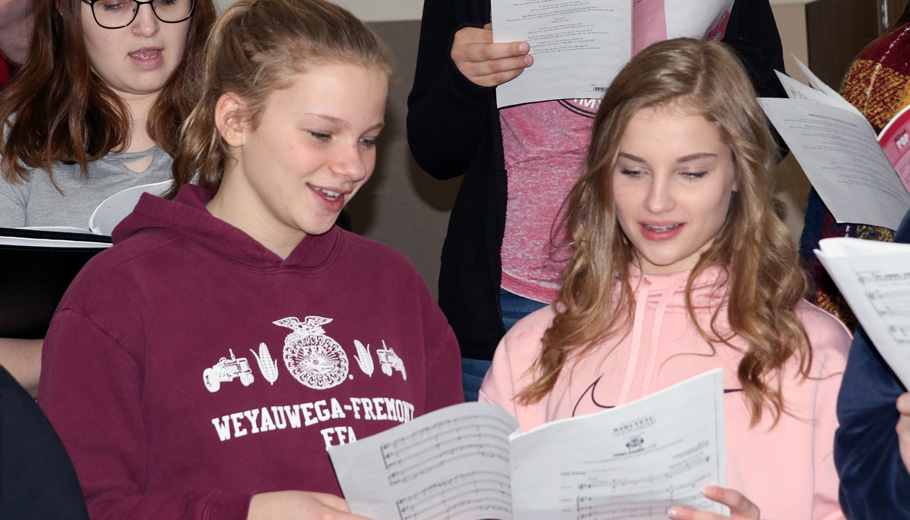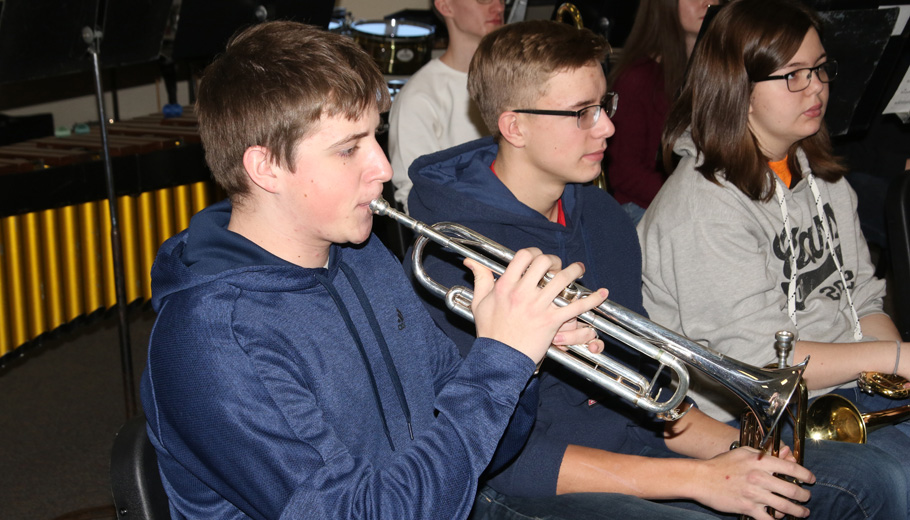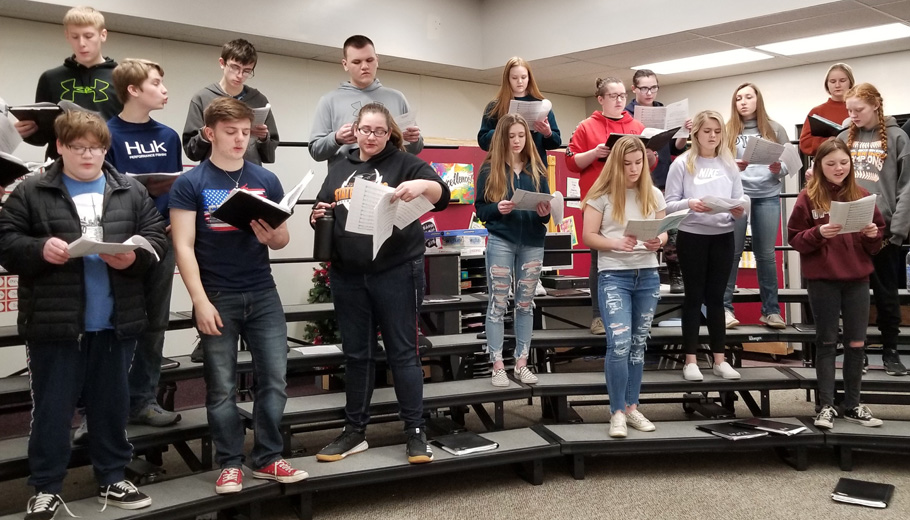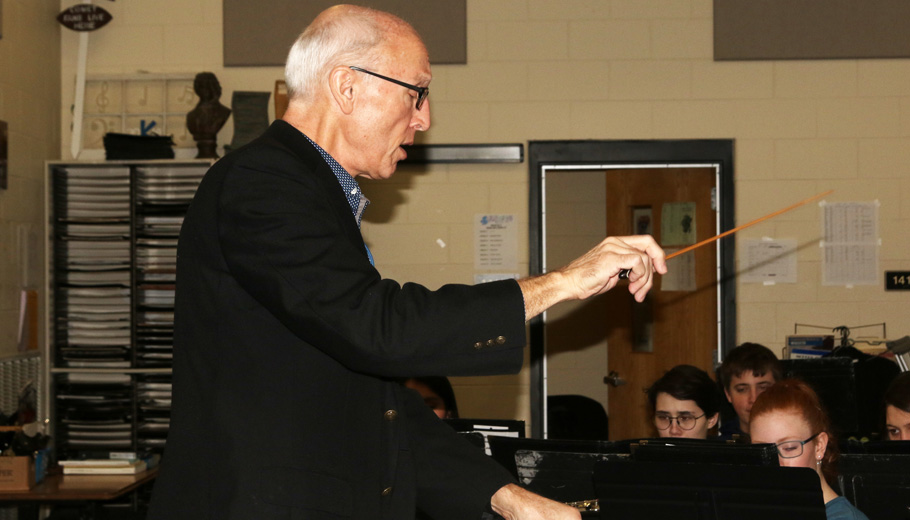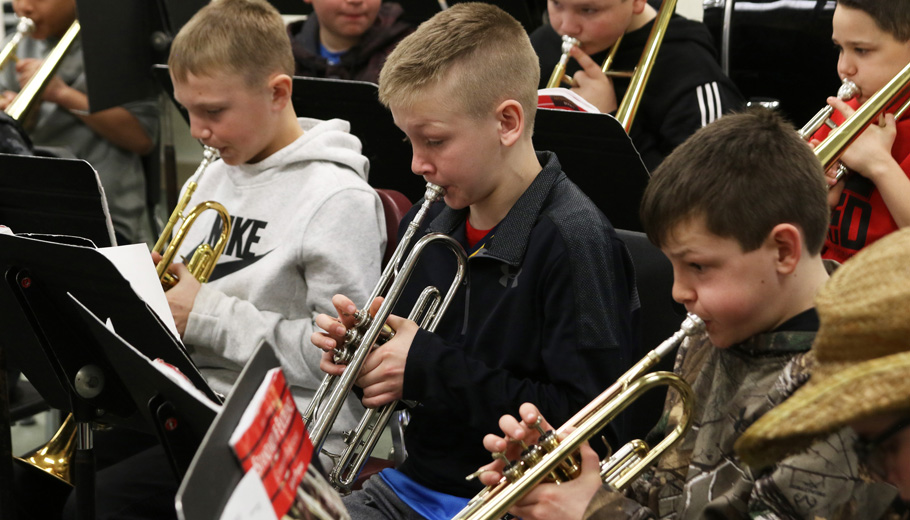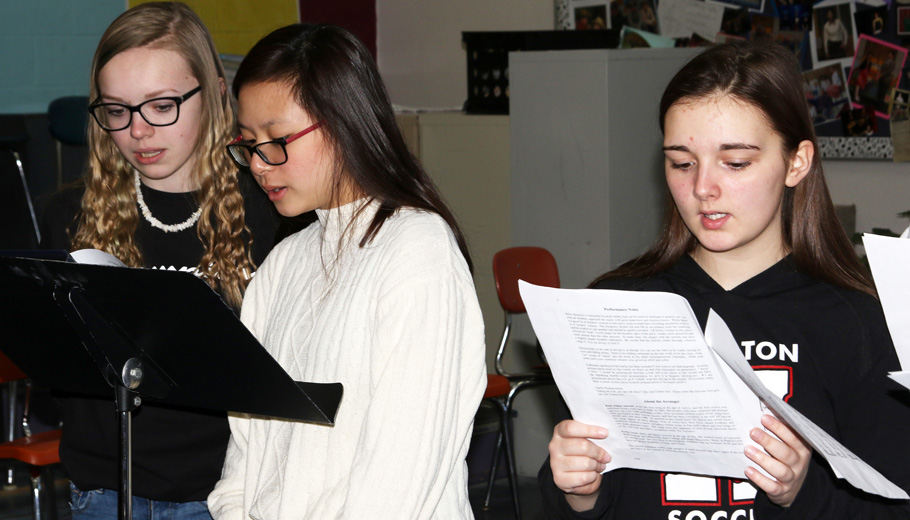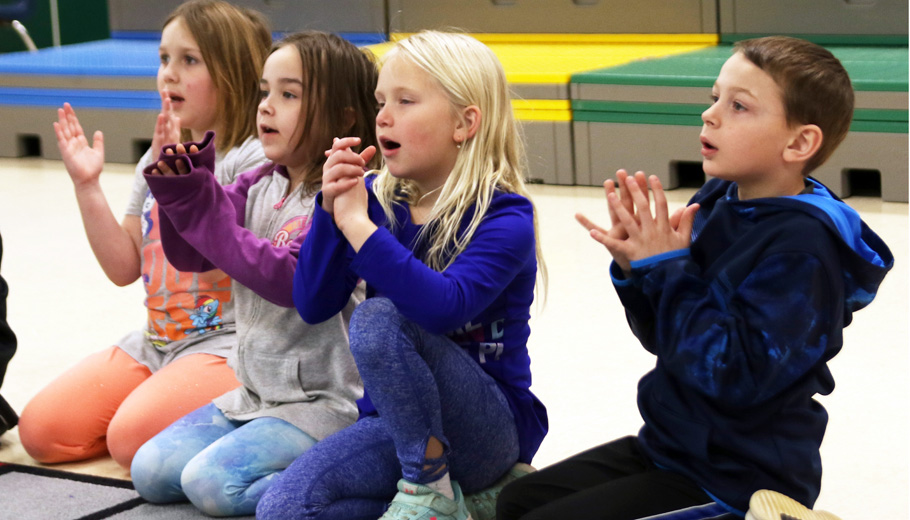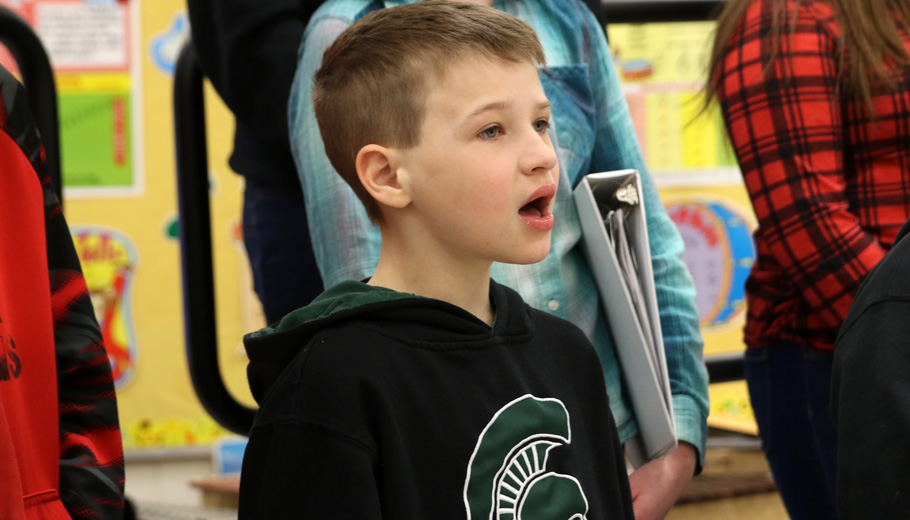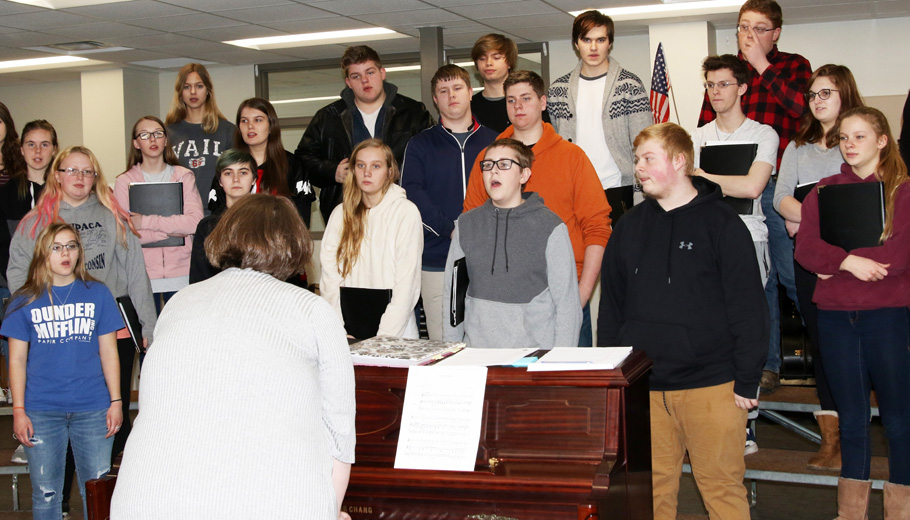Schools recognize value of music
By Holly Neumann
Led by the National Association for Music Education for the past 35 years, the month of March has been recognized as a time to celebrate and raise awareness about music education in schools.
Area teachers shared their thoughts on what music education means and the benefits it offers.
“The dictionary says music is ‘the science or art of ordering tones or sounds in succession, in combination and in temporal relationships to produce a composition having unity and continuity,’” said Kira Morrissey, the grades 4-12 vocal and general music instructor at Iola-Scandinavia. “I think music is movement; it has the ability to move our bodies and our emotions.”
Music is an art form that allows expression, emotion and diversity in organized sound.
It is an international form of communication that connects cultures without needing verbal or written language.
“I believe it to be the sound of people’s souls,” said Casey Danielson, who teaches 4K through third grade general music at Iola-Scandinavia.
Music as personal expression
Music is more than singing a song or playing a tune on an instrument.
“It’s a form of personal expression,” said Mark Kryshak, a Waupaca High School instrumental music teacher. “It can also be relaxing when just listening to music and increase productivity in the workplace. It exists everywhere and has identified societies throughout history.”
“The basis or the ‘nuts and bolts’ are based in mathematics and promote craftsmanship,” said Tara Huber, Clintonville Middle School’s choral director. “Music playing is a skill that is an ongoing mastery.”
Music is part of every student’s education.
“It allows students to develop language and reasoning,” said Huber. “Students are given a platform for expression.”
Kryshak agreed.
“It improves your memory, teaches you how to improve your work through refinement, repetition and practice,” he said. “It increases your coordination and dexterity and keeps you engaged in school.”
There is a sense of accomplishment, and it helps develop emotions.
“It keeps you engaged in positive activities and away from more destructive behaviors,” said Kryshak. “Music students are less likely to be engaged in negative behaviors over the course of their lifetime.”
It gives students a feeling of belonging when they are involved in a music group or classroom.
Most agree music is a universal language and the benefits are many.
“Music has no borders and has the ability to pervade social lives around the world,” said Huber.
“You don’t have to say anything at all to make a connection to someone,” said Danielson.
Music can be seen as an outlet that builds self-esteem, confidence, creativity and self-expression. It relieves stress.
“It’s the international form of communication,” said Morrissey. “It can connect cultures without needing to know the verbal or written language.”
Music and other disciplines
In addition, music integrates all areas of education.
“It is science, because it requires the understanding of sound and acoustics,” said Morrissey. “It is math because it requires knowledge of how to correctly combine and count note values.”
Foreign language also comes into play.
“Most music terms come from Italy, and many songs are written in a language other than English,” Morrissey said. “It is also history because of when, where, why and by whom the song was written.”
Since any songs are written to evoke a specific emotion, it is also a psychology.
Music requires teamwork. consistent skills and practice to be successful, similar to participating in a sport.
It is an art, as it connects people to their own creativity.
Music is something just about anyone can do it.
“Even if they may not be the best singer or musician, as long as you are enjoying yourself that is all that really matters,” Danielson said.
“I’ve met people who have no ear for music but still enjoy listening or dancing,” said Kryshak. “I’ve met people who have no sense of rhythm, yet still enjoy moving to the music.”
Keeping students engaged
“Make it fun and interesting by connecting it to what they know,” said Danielson.
Make it applicable to their lives and use lots of variety.
“Introduce different genres of music throughout the world,” said Huber. “If you are not having fun, you will not be engaged and learning will not take place.”
On a final “note,” some of these teachers shared a few of their favorite memories as music educators.
“Seeing a lightbulb moment happen when they have a complete understanding of something and you see the passion start to grow,” said Danielson.
“Seeing the joy on a student’s face as they perform their spring concert,” said Huber. “It is this concert that they help pick the music and are invested in the outcome.”
All agreed that seeing a student realize their talent is amazing.
That is the success for music education.

